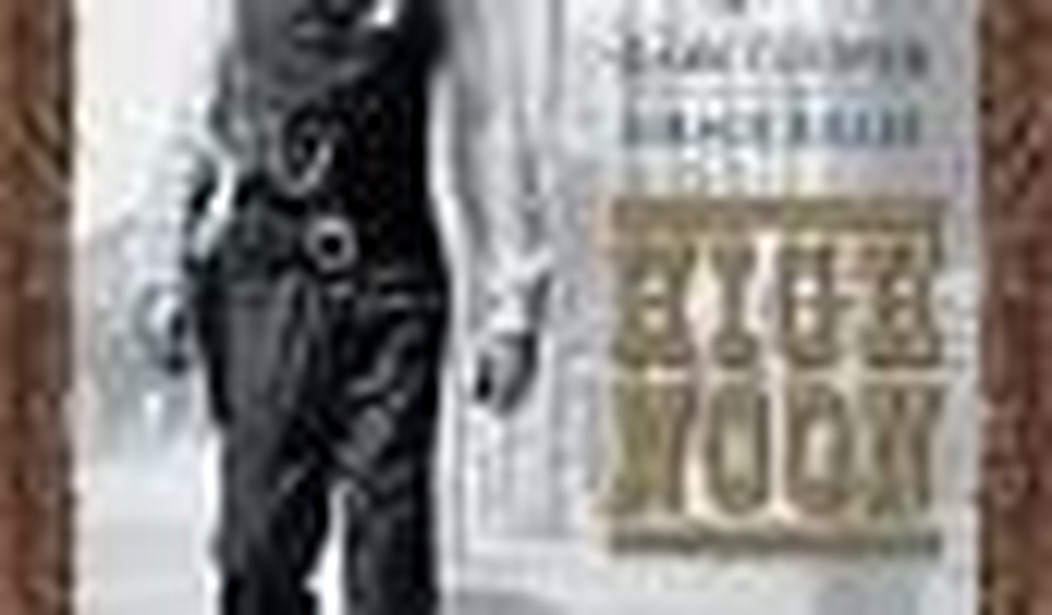The Left has always treasured High Noon as among its finest allegories. Written by the soon-to-be blacklisted Carl Foreman, who was targeted by the House Un-American Activities Commission while the film was being made (and later moved to England), it was later denounced as “un-American” by John Wayne, who along with Howard Hawks made Rio Bravo as a riposte to the supposed defense of collectivism in High Noon. Bill Clinton was such a fan that he screened the film 20 times at the White House. Marshal Will Kane (Gary Cooper) isn’t a churchgoer, which alone is reason to make him a hero to secular liberals.
Yet other fans of the film, which is being reissued on DVD today in an edition that includes a new 50-minute documentary that muses on its multiple meanings, include Dwight Eisenhower and the current President Bush. “What resonates with all kinds of politicians is that Cooper faces apparently insurmountable obstacles and has been abandoned by the people who should be his allies,” Clinton says in an interview included on the DVD. “I think that that has a kind of universal appeal, whatever your politics.” In other words, the film is a kind of warrant for go-it-aloneism, for the idea that has tickled many a politician’s ego: that if everyone is intractably set against you, that’s when you definitely know you’re right.
The film didn’t start out as an anti-McCarthyism allegory, though, and it’s hard to picture a new generation viewing the film as a monument to liberal ideals. Quite the contrary: in a trick of history, or perhaps a lesson that subtle metaphors can fade, High Noon today seems like a conservative work. (This essay contains spoilers.)
Marshal Kane is on his last day on the job in a Western town when, at the start of the film, he marries a Quaker (Grace Kelly, in her star-making role) and prepares to go away with her to begin a new life. The next marshal is due in tomorrow. But the news comes that a man Kane arrested for murder, Frank Miller, who was supposed to hang, had his sentence commuted to life and then was released entirely due to an inexplicable decision by authorities “up North.” Three of Miller’s fellow gunslingers are already in town, and when Miller turns up on the noon train, the four of them plan to take revenge on Kane. Kane spends most of the movie trying but failing to interest townsfolk in becoming deputies to fight beside him, leaving him alone to write out his will and prepare to be slaughtered.
A young student watching High Noon for the first time today is unlikely to even notice any reference to McCarthyism unless prompted. Unlike other films that dealt with the subject — On the Waterfront, Spartacus, The Crucible — High Noon doesn’t feature a scene built around “naming names” — ratting out one’s colleagues.
Foreman’s battle with HUAC is subtext barely noticeable beneath the blaringly obvious text: High Noon is a warning about the dangers of being soft on crime, domestic or international.
The resonance of “up north”— blue states? — is history’s little gag gift to the film. Long before the 60s riots and the notion that every prison was built out of loopholes designed by northern intellectuals, High Noon would not at the time have been seen as politically divisive for its unsympathetic view of paroling killers.
Yet the film’s most potent allegorical power is as a defense of internationalism, of America as world policeman of last resort. Foreman said that he originally had in mind a metaphor about the United Nations.
Marshal Kane is like America going to the U.N. pleading for help in stopping the advance of Communism, getting rejected, and carrying on anyway because it’s the right thing to do. At the time — 1947 or 1948 — that Foreman first started thinking about the plot (which he combined with elements from the short story “The Tin Star”) the issue was Communist penetration into Korea. When the Justice of the Peace tells Will Kane, “This is just a dirty little village in the middle of nowhere. Nothing that happens here is really important,” he is making the classic isolationist case. He might be speaking about Korea, Vietnam or Iraq.
A slightly different argument is made by Kane’s bride Amy, who, as a Quaker, vows to leave him (less than an hour after their wedding!) if he doesn’t simply walk away from the desperadoes. Kane says that isn’t an option: He’ll just have to fight them on some other day. Amy begs Kane to put his notions of good and evil aside and just give peace a chance. “My father and brother were killed by guns,” Amy explains. “They were on the right side but that didn’t matter when the shooting started . . . I don’t care who’s right or who’s wrong. There’s got to be some better way for people to live.”
When Amy changes her mind — she shoots one villain and distracts another, saving Kane’s life — it’s one of the great character reversals in cinema history. What’s happening before our eyes — a pacifist taking up arms — is far more resonant than the reading-between-the-lines view of Kane as a blacklisted screenwriter looking for friends.
Director Fred Zinnemann, an Austrian Jew, saw himself as steering the film toward a message movie about European failure to fight fascism until it was too late. Zinneman’s vision is ultimately the one that prevails. Kane’s little town isn’t populated by Joe McCarthys — but by Neville Chamberlains.









Join the conversation as a VIP Member